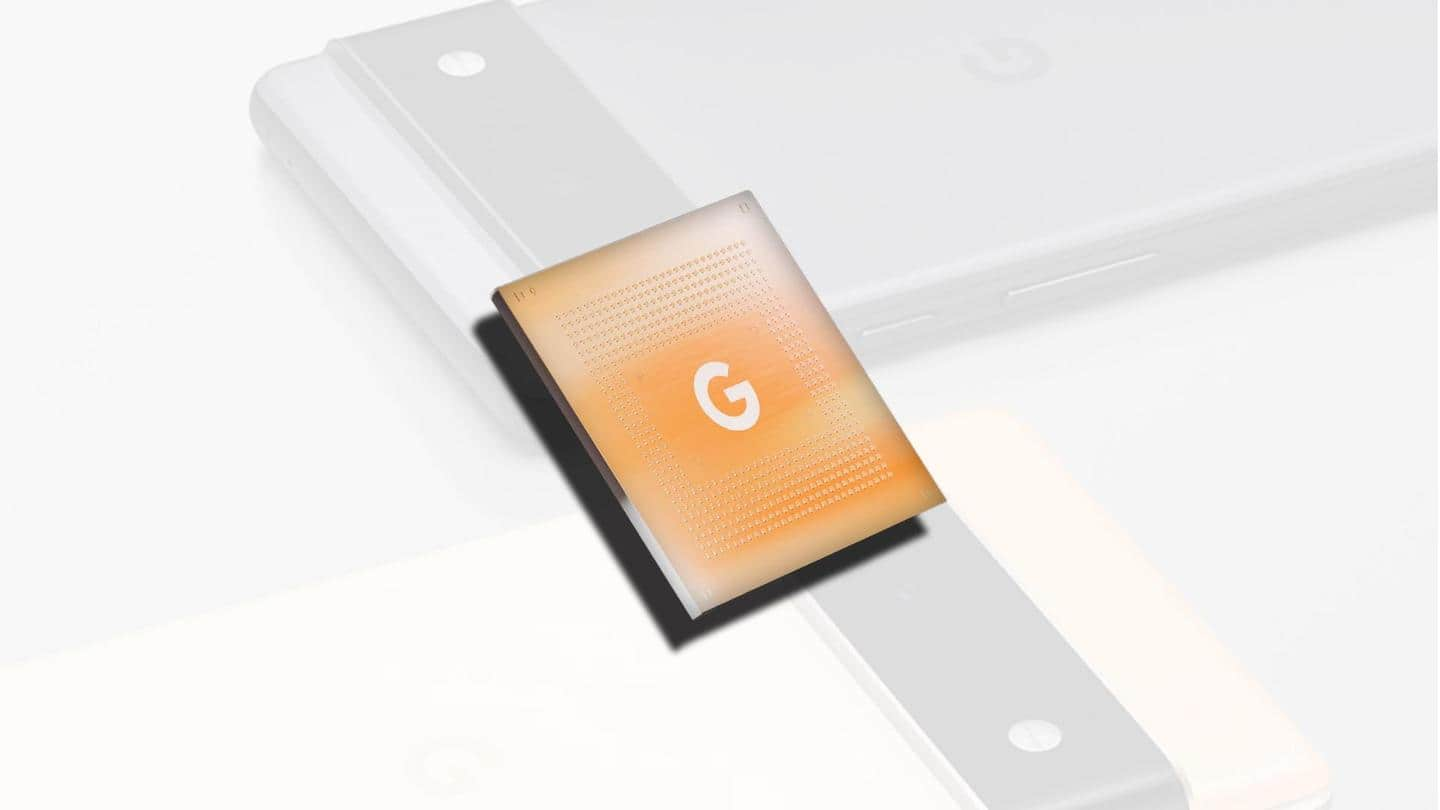
#NewsBytesExplainer: Everything about Google's new Tensor chip for Pixel 6
What's the story
In the months leading up to the Pixel 6 launch, there have been rumors of a "Whitechapel" processor designed in-house and from the ground up by Google.
Turns out that rumor is true. The search giant recently unveiled the new Tensor chip that would be powering both the Pixel 6 and the Pixel 6 Pro.
Here's everything you should know about the new chip.
First rodeo?
Google's new Tensor chip derives its name from TensorFlow
This isn't Google's first experiment with custom systems on a chip (SoCs). Previously, we have seen the Titan M security chip, the Pixel Visual Core, and the Pixel Neural Core.
The new Tensor chip derives its name from Google's TensorFlow Machine Learning (ML) system and aptly so since it aims to enhance Artificial Intelligence (AI) and ML capabilities on the new Pixel 6 devices.
New capabilities
Pixel 6's video processing could see significant improvement with Tensor
According to Google, the ARM architecture-based Tensor chip is customized to run Google's computational photography models which could translate into huge improvements for images and videos.
Rumor has it that Tensor is indeed the "Whitechapel" chip that was leaked earlier this year. It has reportedly been developed in partnership with Samsung and is speculated to be an octa-core silicon based on the 5nm process.
Important gains
Google's greater control over optimization could improve battery life
While the full specifications of the Tensor chip will be announced with the Pixel 6 later this year, the chip has encouraged Google to replace trusty smaller camera sensors with new larger ones for the Pixel 6 since it can now better optimize end-to-end image processing and computational photography.
Speaking of optimization, Tensor could lead to improved battery life and performance gains as well.
For enthusiasts
Tensor-related improvements could change Google Camera app for the better
On the other side of things, Tensor's image processing benefits will probably boil down to improvements in the Google Camera app as well.
Interestingly, this app has been ported to several Android devices which could also reap the benefits of enhanced image processing.
Google has also optimized Tensor to improve speech-to-text processing which could improve Pixel 6's Live Caption and similar features.
Complete control
Google could also deliver Android updates for longer via Tensor
YouTuber Marques Brownlee noted that in the software updates department, it is speculated that the new Pixel devices running Tensor chips could receive Android updates for longer than the industry average of three years.
This is primarily because Google itself will be in control of the entire stack from Android to Tensor chip, and everything in between.
Future scope
Tensor could be scaled for Chromebooks, Pixel Watch as well
Google CEO Sundar Pichai had said that Tensor has been four years in the making. Brownlee speculated that if Google's Tensor implementation with the Pixel 6 is well received, there could be a future scaled-down version of the chip for say, the Pixel Watch, or a scaled-up version for Chromebooks.
This is reminiscent of Apple's shift from Intel processors to the M1 chips.
Flipside
Is Google masking last-generation hardware behind AI and ML-centric marketing?
Meanwhile, Android Authority speculated that Tensor's AI and ML-themed marketing is poised to mask its reliance on older-generation Mali GPU cores and Cortex A78 CPU cores.
The publication also highlighted that the Pixel 6's 5G-readiness remains unknown.
Is Google's shift from Qualcomm SoCs going to reap benefits like Apple's shift from Intel to M1 processors? For now, we aren't sure.